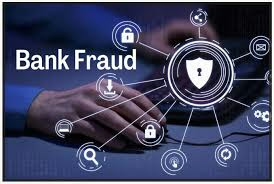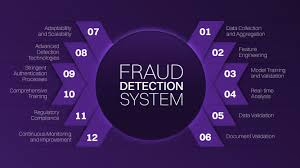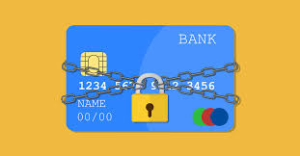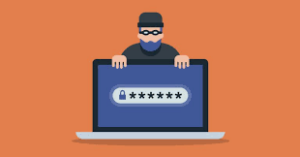If you fall victim to a scam, recovering your lost funds is often a daunting challenge. Therefore, it’s crucial to take proactive measures to safeguard your bank account against potential fraud.
One effective way to enhance your account’s security is by enrolling in your bank’s security features. Options like two-factor authentication and transaction alerts can provide an added layer of protection, notifying you of any unusual activity.
Additionally, staying in close communication with your bank, law enforcement, and the Consumer Financial Protection Bureau can be instrumental. Reporting fraudulent activity promptly increases your chances of recovering lost funds.
While artificial intelligence has empowered fraudsters to execute scams more efficiently, it also aids banks in detecting suspicious behaviour. Financial institutions are increasingly utilising advanced AI technologies to monitor transactions and flag anomalies.

In 2023, Americans lost over $10 billion to fraud, marking a staggering 14% increase from the previous year, according to the Federal Trade Commission. Although these statistics highlight the growing prevalence of consumer fraud, there are numerous steps you can take to protect your finances, alongside the efforts banks are making to secure your accounts.
How to Safeguard Your Bank Account from Fraud
Protecting your bank account from fraud is essential in today’s digital age. Most banks offer a variety of security features that, when activated, can significantly enhance your account’s safety.
One critical feature is two-factor authentication (2FA). This added layer of security requires you to enter your password and then confirm your identity through a text message, email, or phone call. Even if someone obtains your password, they still can’t access your account without the second form of verification.
Transaction notifications are another valuable tool. By enabling alerts for every transaction, you can quickly identify any unauthorised purchases. “That way, you get instant notification and can immediately dispute a charge that you don’t recognise,” explains Mason Wilder, a certified fraud examiner.

Additionally, regularly monitoring your account activity and changing your passwords can further protect your assets. Always ensure that your bank’s security features are fully activated to enjoy peace of mind.
To enhance the security of your bank account, it’s crucial to keep your contact information up to date. This ensures that your bank can quickly reach you if they detect any unusual activity on your account. Many banks have implemented advanced fraud detection systems that recognise atypical purchases. For instance, they may send you a text message asking you to confirm whether you authorised a specific transaction.
Bank of America offers a handy feature called the Security Center. This tool allows customers to see their account’s security status improve as they take proactive steps to safeguard their information.

Additionally, don’t overlook the importance of emails from your bank regarding fraud detection. These communications often contain valuable insights into emerging scams and protective measures. As Wilder suggests, taking just a couple of minutes to read these alerts can significantly enhance your awareness and security.
Becoming a victim of fraud can happen more quickly than you might expect. Typical scenarios include having your card skimmed at gas stations or other points of sale, which can lead to unauthorised charges on your account. Always stay vigilant and informed to protect yourself from potential threats.
What to Do If Your Bank Account Numbers Are Compromised
Sean Dyon, director of strategic alliances at HID Global, a global security firm, advises that you inform your bank about the fraudulent activity to halt any unauthorised transactions and mitigate further losses.
Different financial institutions have varying protocols for dealing with fraud and supporting their clients. Additionally, updating your passwords can be an effective way to minimise the impact.

If a scammer has obtained your bank account information, you must also notify the Consumer Financial Protection Bureau (CFPB) as quickly as possible.
“That agency is the appropriate channel to ensure you receive the necessary services and guidance to navigate this difficult situation,” Dyon emphasises.
Will Banks Refund Money Lost to Scams?
In many situations, you will likely need to file a formal police report before you can initiate the recovery process for your lost funds.
“Contacting law enforcement—whether local, state or the FBI, which runs an internet crime complaints centre—is important. The FTC and CFPB also offer resources for reporting fraudulent activities,” explains Wilder.

While filing a report with the FTC or CFPB may not guarantee the recovery of your money, it does assist these agencies in understanding fraud trends and improving consumer protection efforts.
How Banks Are Enhancing Fraud Protection
While scammers may employ advanced tactics, banks are equally equipped with sophisticated measures. In cases where a fraudster has infiltrated your account, banks can leverage their systems to detect unusual activity.

Rakesh Mirajkar, senior vice president of consumer protection at Capital One and chair of the Fraud Management Committee of the Consumer Bankers Association, explains that Capital One employs advanced machine learning and AI technologies to monitor a customer’s card activity continuously.
“We can usually detect indicators such as the originating device and its destination. Therefore, banks can intervene and identify fraudulent transactions in these scenarios,” Mirajkar states.
Katie Björk, director of communications and solutions marketing at HID, and Dyon refer to this AI detection method as “behavioural intelligence.” By analysing a user’s location and behavioural patterns, banks can pinpoint transactions that may pose a higher risk.
“Machine learning adapts to your typicalbehaviourr, so if your habits change, it will adjust accordingly,” Björk notes. “For instance, if you frequently travel, it won’t flag every transaction as suspicious just because you’re on the move.”
However, complications arise when consumers unknowingly provide their account details or conduct transactions while being scammed.
“This situation is a bit more complex, but banks can still contribute by educating consumers,” Mirajkar asserts.
Additionally, banks might collaborate to track down fraudulent transactions. Your bank could coordinate with the financial institution involved in your transaction to recover lost funds.

Yet, it emphasises that the responsibility shouldn’t rest solely on banks and consumers. The government has a vital role to play in bolstering security measures. Scammers are increasingly active on online platforms like Facebook and Instagram, and they can also spoof caller ID to impersonate legitimate contacts.
“I believe other stakeholders in the ecosystem need to take this issue seriously and assume a more significant role than they have in the past,” Mirajkar remarks.
The fraud landscape has evolved significantly in recent years, with new threats emerging as technology advances. Artificial intelligence has become a double-edged sword, acting as both a tool for fraudsters and a resource for consumers seeking protection.
Romance scams exploit emotional vulnerabilities, luring individuals into false relationships to steal their money. Meanwhile, cryptocurrency scams promise quick fixes to financial woes, often leading to devastating losses.
However, fear shouldn’t dominate the conversation around fraud. Empowerment is key.
“Technology is rapidly changing, and you have the power to shape your future,” says Mirajkar. “Take control by making informed choices.”
Investing in education about fraud prevention is crucial. Familiarise yourself with the security features offered by banks and actively participate in their programs. This proactive approach can help safeguard your financial well-being and mitigate the risks posed by modern fraud tactics.

Maxthon
In a rapidly evolving digital world where online interactions can shift in an instant, it is crucial to prioritise personal safety while navigating the vast internet. Given the intricate network of connections, choosing a web browser that focuses on security and privacy is vital. Amidst a multitude of competing browsers, the Maxthon Browser emerges as a standout option, effectively tackling these significant concerns without charging its users. This sophisticated browser features an impressive selection of integrated tools, such as a robust ad blocker and various anti-tracking functions—essential components designed to enhance your online privacy.

Maxthon has established a distinct presence in the saturated browser market by committing to a user experience that emphasises safety and confidentiality. With a strong focus on protecting personal data and online activities from numerous potential threats, Maxthon utilises a range of practical strategies to secure user information. By implementing state-of-the-art encryption methods, this browser guarantees that sensitive data remains safe and confidential during every online venture.
When it comes to improving privacy during your online activities, Maxthon excels. Every element of this browser has been carefully crafted with features aimed at enhancing your privacy. From its efficient ad-blocking functionality to comprehensive anti-tracking solutions and a specialised incognito mode, these tools work together seamlessly to remove disruptive ads and counteract tracking scripts that could interfere with your browsing experience. As a result, users can navigate the internet with greater peace of mind. The incognito mode further amplifies this sense of security, enabling individuals to browse with increased assurance.
